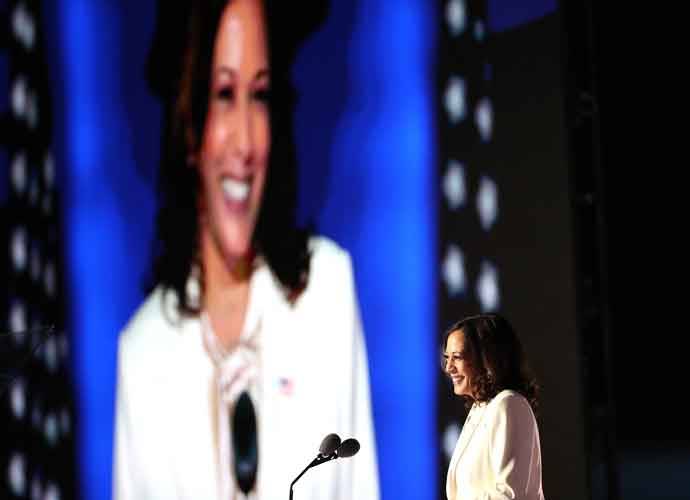Harris Unveils Progressive Economic Plan To Lower Costs & Cut Taxes For Middle Class
On Friday, at an event in Raleigh, North Carolina, Vice President Kamala Harris unveiled her economic policy pitch focused on lowering the costs of food, housing, healthcare and childcare to appeal to middle-class voters.
In her first policy speech since taking over for President Joe Biden after his withdrawal from the race last month, Harris outlined her vision for an “opportunity economy” centered on basic financial security.
With less than 90 days until the election, Harris is emphasizing the Biden administration’s economic successes while aiming to change the narrative on issues where her predecessor struggled.
Her economic plan, as detailed in the fact sheet, aims to curb high grocery prices by urging Congress to pass a federal ban on “corporate price-gouging,” establishing clear guidelines to prevent companies from exploiting consumers on essential items.
Subscribe to our free weekly newsletter!
A week of political news in your in-box.
We find the news you need to know, so you don't have to.
Harris’s economic policy plans to empower the Federal Trade Commission and state attorneys general to investigate and penalize alleged violations.
Additionally, the vice president’s plan aims to protect renters by blocking data firms from raising lease rates and preventing Wall Street investors from bulk-buying homes to resell at a premium.
She also proposes constructing three million new housing units over the next four years, supported by new tax incentives for builders who construct “starter homes.”
As entry-level supply increases, Harris’ plan would offer up to $25,000 in down-payment assistance to working families who have paid rent on time for two years and are buying their first home, with additional support for first-generation homeowners.
According to the Harris campaign, she also aims to extend the Biden administration’s $35 insulin price cap for Medicare recipients to all Americans, aiming to target “pharmaceutical companies who block competition and abusive practices by pharmaceutical middlemen.”
The Democratic presidential nominee also proposed a new $6,000 child tax credit for families with newborns, building on the child tax credits introduced during the Covid pandemic by the Biden administration.
Harris contrasted her economic proposal with that of her opponent, former President Donald Trump, criticizing his support for sweeping tariffs on imports and his effort to cut taxes for billionaires and corporations.
“I think that if you want to know who someone cares about, look who they fight for,” said Harris.
Although light on specifics, her plans have already faced strong criticism from Republicans and economic analysts, who warned they may lead to government price fixing.
“Having the government set prices is a really, really big mistake,” said Kevin Hassett, a senior economic adviser in the Trump White House, during a Friday press call.
Meanwhile, the nonprofit Committee for a Responsible Budget estimates that Harris’ economic plan would increase deficits by $1.7 trillion over the next decade.
In just three weeks on the campaign trail, Harris has erased Trump’s polling advantage over Biden. However, she has mostly avoided discussing policy specifics, focusing instead on contrasting herself with Trump.
Harris delivered her speech just two days after Trump’s economy-focused address in Asheville, North Carolina, where he launched personal attacks at Harris, blaming her for high consumer prices that Biden has been working to reverse.
Get the most-revealing celebrity conversations with the uInterview podcast!






Leave a comment